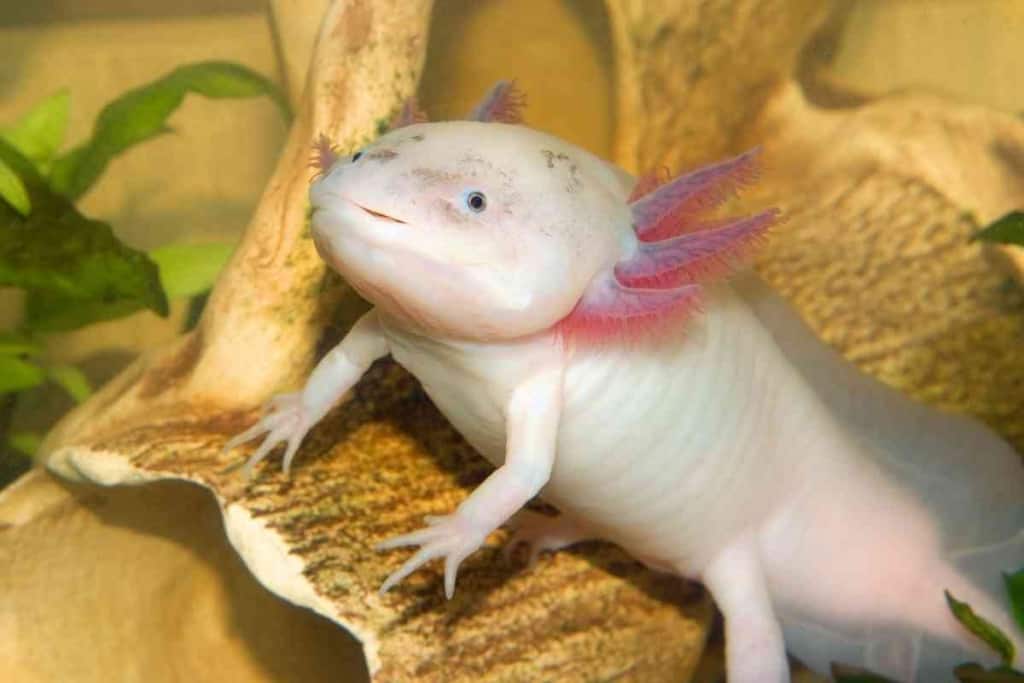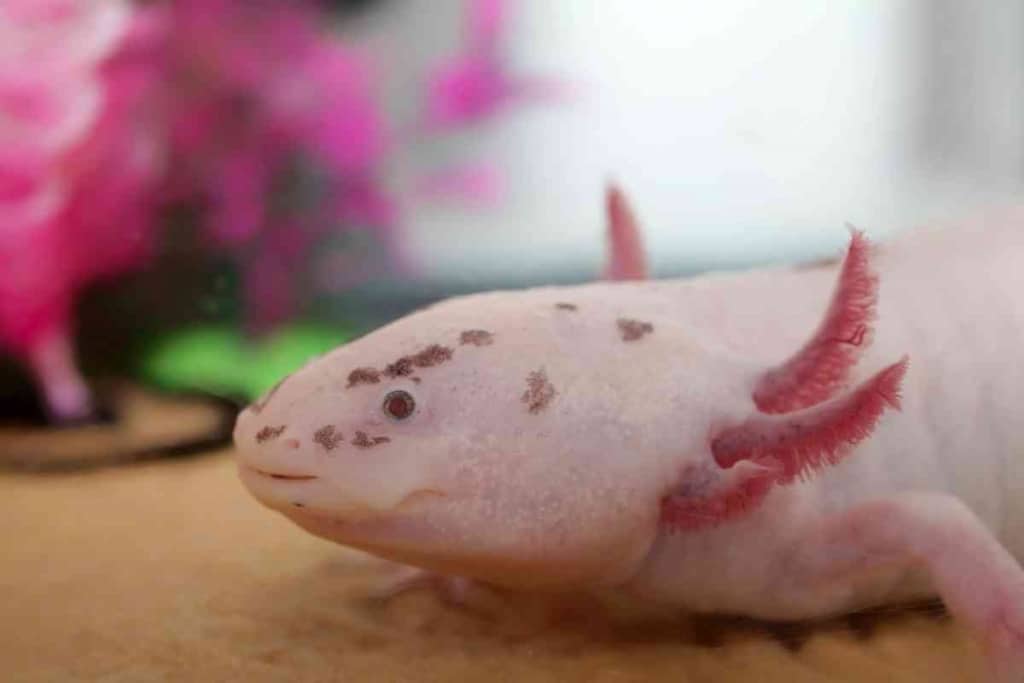How Hard Do Axolotls Bite? Watch Out!
Unlike a cat or a dog, owning an exotic pet is super intriguing. However, it comes with a unique set of requirements and hazards you may not be prepared for. Did you know that you can keep a pet axolotl? Axolotls are weird-looking slippery creatures that live in water. They resemble fish but fall into the category of amphibians. If you’re looking for something rare, easy to look after, and calm, an axolotl is an excellent pet. A concern for many people looking for or who already own an axolotl is why they bite. How hard do axolotls bite? Read on to find out.

How Hard Do Axolotls Bite?
Axolotls are not only famous for their unusual looks but also their rather hostile reputation. Getting bitten by an axolotl may come as a surprise, but no matter how hard their grip is, an axolotl bite cannot hurt you. There are a few cases of bleeding from axolotl bites, but nothing serious enough for you to check into the hospital emergency room.
Why Axolotls Bite
In their natural habitat, axolotls eat all the time. For them, anything that moves is probably their next delicious treat. An axolotl’s natural response to your fingers wiggling in their fish tank when you’re feeding them, or trying to touch them, is to bite.
Axolotls thrive in the underwater ecosystem. They are known as top-tier predators in the survival-for-the-fittest race.
Other animals that share their space stay away from axolotls lest they become prey. When hungry, they might feed on their siblings’ limbs.
As Kings in the wild habitats, axolotls have a knack for fearlessness and aggression. This doesn’t stop because you move the axolotl to a small tank and call him your pet. Expect your hand to get bitten whenever you dip it into their space.
An axolotl is triggered to bite under two main circumstances. They include:
Self Defense
If you startle an axolotl by suddenly dipping your hand in the water, they’ll see your hand as a threat and pounce. Most axolotls are super alert. Thus, there’s a small chance that an axolotl will be caught off guard and need to defend itself.
The more the axolotl sees you, the more they’ll get used to seeing you whenever it’s feeding time. When they are not afraid of your intrusion, you don’t have to feel worried about their aggression.
They Are Hungry
Your pet axolotl may bite you because they mistake your finger for food.
Be careful when feeding your axolotl, and avoid getting too close to him if you don’t want to get bitten. If by some chance, the axolotl manages to bite you, it means they have a strong grip on your hand.
Instead of vigorously wiggling your hand to get him off, give the axolotl some time. Soon enough, the axolotl will realize that your hand is not food and will let go. Shaking your hand risks injuring the axolotl because they can bump into something and get hurt.
Do All Axolotl Species Bite?

All axolotls have distinctive yet similar features that can make you wonder whether or not they share the same behaviors. All axolotls bite. But it’s nothing you should worry too much about. An axolotl has a few tiny blunt teeth.
While they take every chance to pounce on your hand to bite you, you’ll barely feel any pain. You may feel a bit of pressure but an axolotl’s teeth aren’t sharp enough to pierce the skin.
How Best to Handle Your Axolotls
They may appear cuddly, soft, and seemingly harmless, but axolotls are unlike other pets you own. Axolotls resemble frogs and lizards but are entirely aquatic and cannot spend too much time in the air.
If you have had fish for pets, you come well prepared to care for axolotls because their demands are almost the same. You shouldn’t handle fish with your bare hands the same way you should handle axolotls.
Unless you need to move them from their tank and place them in a nearby temporary tank, it’s best to avoid holding an axolotl altogether.
So how do you bond with your pet axolotl if you can’t touch him? The best time to bond with your axolotl pet is during feeding time. However, when you have to pet him, be careful not to hurt him. Axolotls have very thin, slimy, and slippery skin.
Like most other amphibians, Axolotls can quickly regenerate skin and missing limbs. But don’t take this as your cue to hurt your pet by mishandling him. You can touch your axolotl. But doing it too frequently makes them more susceptible to infection, which could be fatal if left unchecked.
Can I Keep Axolotls With Other Fish?
Axolotls can live comfortably with other water creatures. However, owing to their questionable character, you may wonder if other similar species, like fish, are safe around axolotls. Axolotls can get territorial and aggressive towards other fish only when fighting for space and food.
Avoid keeping smaller fish around your axolotl, as they will quickly become delightful snacks. Remember that axolotls feed on the same small creatures in their natural habitat and will be instinctively triggered to do the same in the fish tank.
On the other hand, keeping bigger fish around your axolotl isn’t a good idea either because larger fish are also aggressive and territorial enough to hurt an axolotl. Axolotls can be unreasonable and pick a fight with anything, regardless of size.
A large fish may not fight an axolotl because they want to eat it but because they want to eliminate the threat.
Frequently Asked Questions
Here are some of the commonly asked questions about how hard axolotls bite.
How can I keep my axolotls from biting each other?
Many axolotls in one tank are a great idea until they start nipping on each other. To prevent them from biting, feed them adequately several times a day. To keep them from competing, consider maintaining space between the axolotls during feeding time.
Do axolotls have teeth?
Yes, axolotls have tiny teeth on their upper and lower jaws. They don’t use their teeth for chewing or self-defense but rather for gripping food.
Is it safe to touch an axolotl?
You can gently pet an axolotl. However, axolotls are super sensitive to changes in their environment. Thus, touching them could have physical repercussions, such as decreased immunity and eventual infection.
Also, axolotls have delicate skin and bodies. They have cartilage instead of bones; hence delicate. Holding them is discouraged unless you have experience and the circumstances are unavoidable.
Are axolotls dangerous to humans?
Axolotls are not a threat to humans. Because they can bite, some people aren’t sure if keeping a pet axolotl is a good idea. However, axolotl bites are painless.
